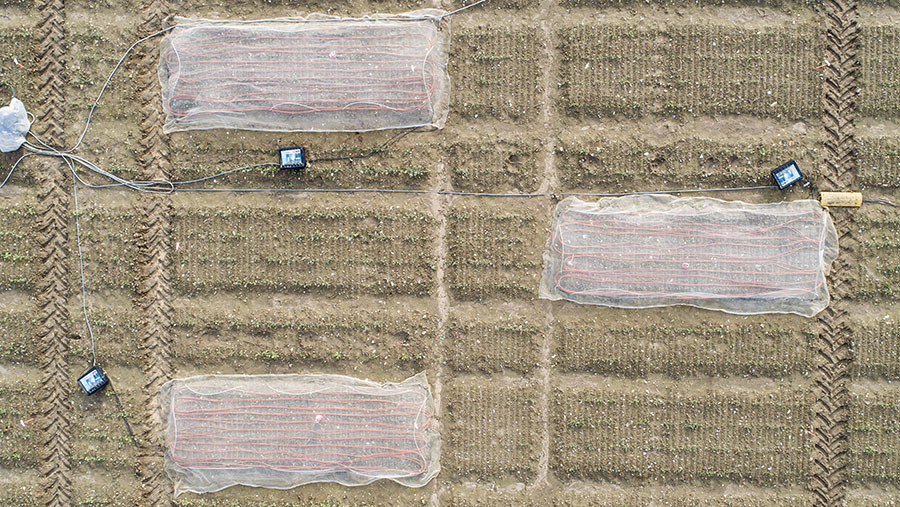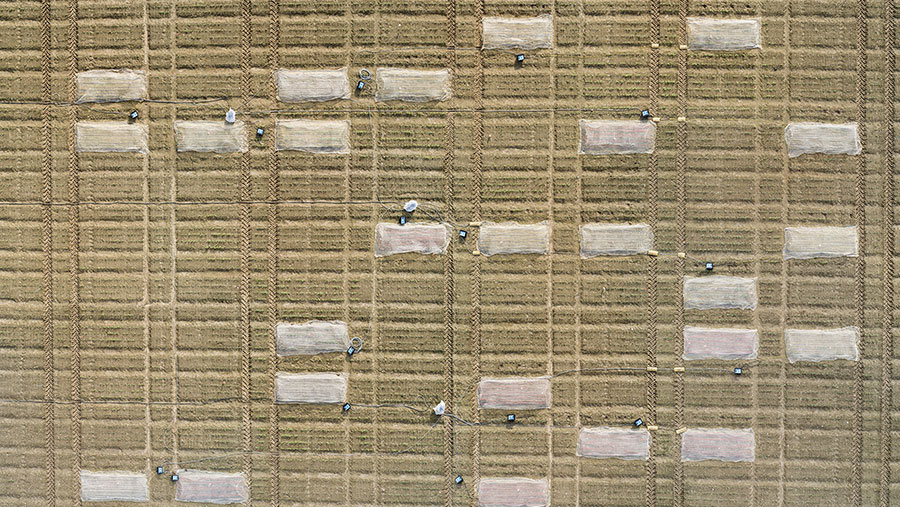Warm winters can cut rapeseed yields by 25%, research shows
 © Phil Robinson
© Phil Robinson Warmer winter weather linked to climate change can cut yields of crops such as oilseed rape by up to 25% due to the reduction in the flowering ability of this annual crop.
Oilseed rape plants undergo a developmental phase known as flower bud dormancy if winter temperatures are too warm, where newly formed buds lie inactive, waiting for low temperatures to signal growth, researchers at the Norwich-based independent John Innes Centre (JIC) have shown.
By identifying this bud dormancy period in November and December, it is hoped that researchers and breeders can respond to the challenge of climate change. One strategy under consideration is to identify varieties that are less sensitive to temperature, say researchers.
Steve Penfield, a group leader at the JIC, says this development stage is not known to exist in annual crops – those that complete their life cycle in one growing season – while it has been detected in perennial plants that grow year after year.
“If flower buds experience warmer-than-average temperatures, growth slows down and plants produce aberrant flowers and low yield. Conversely, we know that if plants get chilled at this stage, it promotes faster growth and higher yield,” says Prof Penfield.
See also: Oilseed rape grower cuts back 20% on expensive nitrogen

© Phil Robinson
Bud dormancy
Previous research has shown the importance of temperature for a biological developmental process called vernalisation, which in oilseed rape occurs in October, but this second temperature-sensitive process, bud dormancy, surprised the researchers.
Lab-based and in-field work was able to simulate full growing seasons and establish that chilling is important in late November/early December because it promotes growth during the early floral development of the crop.
Oilseed rape plants that were chilled at this key developmental stage developed faster and were higher yielding, producing more seeds per pod.
Conversely, plants grown in warmer conditions grew slowly and were lower yielding, with a variation of up to 25% of total yield.
Following indoor, lab-controlled trials, the research team moved the experiment to a field trial, using a heated field plot system outdoors at the JIC and its experimentation site at Church Farm.
Both showed that warmer conditions led to slower growth and reduced yield.
Using molecular techniques, the team analysed the genes expressed in the bud tissues of the oilseed rape plants that were affected by temperature changes.
This showed that a previously well-known chilling response gene called FLC was mediating plants’ bud dormancy response to winter temperatures.
“We had seen this correlation between chilling and yield in the data, but until now we could not say that chilling was linked to the physiology of the crop.
“It is not, for example, that chilling just kills some disease or pest – although it might do that as well. We now know why chilling influences yields – it is down to the physical effect on the growth rate of the plants,” says Prof Penfield.

